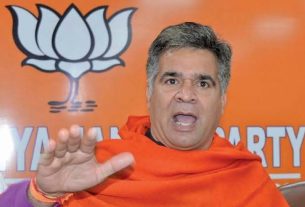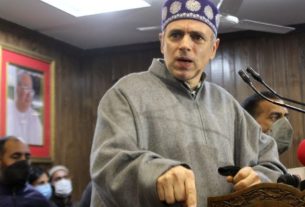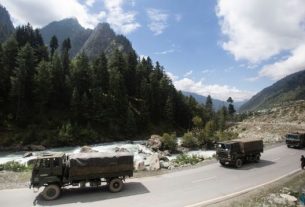As Jammu and Kashmir prepares for a new government led by National Conference (NC) chief minister-designate Omar Abdullah, the Supreme Court on Monday declined to hear a petition challenging the lieutenant governor’s (LG) authority to nominate five members to the legislative assembly. This power, outlined in Sections 15, 15A, and 15B of the J&K Reorganisation Act, 2019, could potentially shift the assembly’s balance of power.
Senior counsel Abhishek Manu Singhvi, representing petitioner Ravinder Kumar Sharma, argued that these provisions could undermine the electoral mandate by allowing the LG to alter the assembly’s composition. “If the LG nominates five members, it could effectively change the majority dynamics, potentially overturning the election outcome,” Singhvi contended. However, the bench, comprising Justices Sanjiv Khanna and Sanjay Kumar, directed the petitioner to approach the high court instead, stating, “Not everything has to come to this court directly.”
The petition comes amid the NC’s electoral victory, securing 42 out of 90 seats, with allies Congress and CPI(M) pushing the coalition tally to 49—comfortably above the majority mark. However, Sections 15, 15A, and 15B allow the LG to nominate five members, including women, displaced Kashmiri migrants, and a representative from Pakistan-occupied Jammu and Kashmir, potentially raising the assembly’s membership from 90 to 95.
Sharma’s plea argued that these nominations, especially if made post-election but before the government’s formation, would disrupt the assembly’s democratic structure. Citing past cases like SR Bommai (1994), which emphasized proving majority on the assembly floor, the petition raised concerns over potentially shifting power dynamics without legislative oversight.
The bench dismissed the urgency of the claim, noting no nominations had occurred yet. It advised Sharma to seek remedies under Article 226 of the Constitution via the high court, leaving open the possibility to return to the Supreme Court if circumstances warranted.
The legal challenge comes as J&K emerges from five years of President’s rule, imposed after the abrogation of Article 370 and the region’s reorganization in 2019. With elections now concluded, the NC-led coalition is poised to form a new government, seeking to heal social divisions and restore J&K’s statehood—a commitment reiterated by NC president Farooq Abdullah.
The controversy highlights the ongoing legal and political complexities in J&K, where recent changes have significantly redefined the region’s governance framework.





